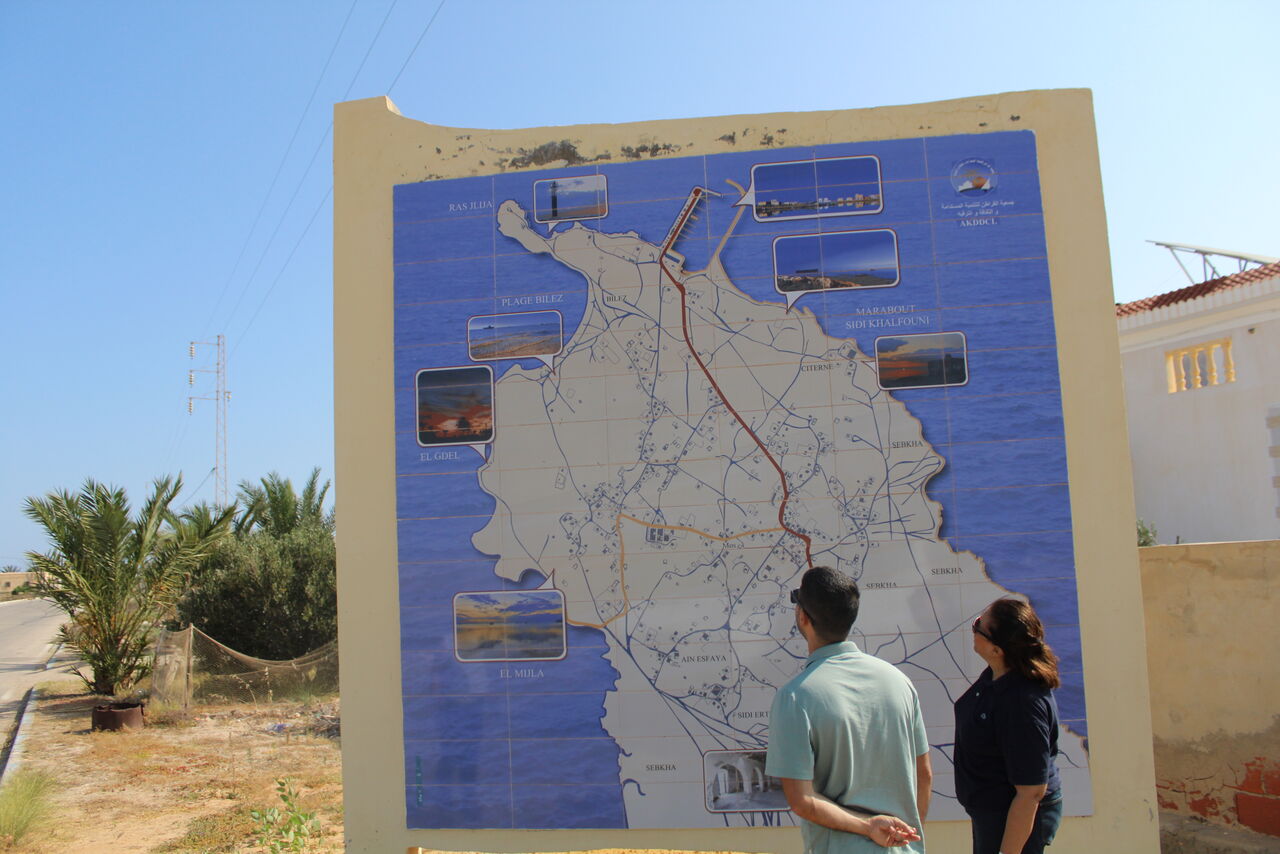KERKENNAH ISLANDS
Located in the Gulf of Gabès, Tunisia, the Kerkennah Archipelago is facing increasing threats from sea level rise, compounded by various human-induced factors. Reconnecting with mutual care practices and endogenous knowledge could represent a crucial lever for rethinking the island’s climate adaptation strategies.
This approach was explored by three researchers in management, marketing, and the social sciences from Université Gustave Eiffel, Université Bretagne Sud, and Université de Nantes: Amina Béji-Bécheur (IRG), Leïla Damak (LEGO), and Danielle Pailler (LEMNA) and supported by Mariem Rekik (UN-Habitat).
Their work led to a scientific paper presented at a conference in Djerba entitled: "Strengthening Climate Resilience through an Approach Based on Care, Cultural Rights and Social Innovation: The Case of the Kerkennah Islands."
The Kerkennah case falls under Thematic Axis 3 of the Chair: "Protecting Endangered Heritage and Building Resilience."
Context
Climate change poses a direct existential threat to the Kerkennah Islands. According to a stark report from the Tunisian government, up to 30% of the archipelago’s surface area could be submerged by 2100.
This situation is worsened by several anthropogenic pressures:
- Overexploitation of natural resources (including illegal sand dredging and destructive kys fishing methods),
- Unregulated tourism development and related pollution,
- Institutional fragmentation hindering coordinated responses.
These dynamics endanger local ecosystems (coral reefs, lagoons), threaten ancestral cultural practices (such as charfiya fishing), and strain social cohesion (through informal migration, intergenerational tensions, and more). The researchers ask: “In the face of the systemic challenges posed by climate change, how can triangulating the insights of care theory, cultural rights, and circular social innovation help address the urgent territorial challenges of resilience?”.
“Resilience is the capacity of an individual or group to develop positively, to maintain a future orientation, despite destabilising events, difficult living conditions, or severe trauma.”
— Manciaux, Vanistendael, Lecomte & Cyrulnik (2001),
Resilience: Resistance and Reconstruction. Geneva: Cahiers Médicaux Sociaux

